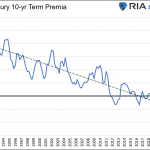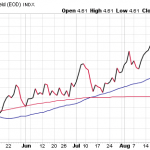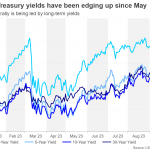Deutsche Bank identifies potential threats for inflation resurgence


© Shutterstock
Deutsche Bank (DB) highlighted potential threats that could lead to an inflation resurgence in a recent report. The bank pointed out four key risks: persistent above-target inflation in all G7 nations, price shocks if the Consumer Price Index (CPI) remains over the target for two or more years, hampered economic growth due to policy tightness, and the risk of the Federal Reserve over-tightening, which could trigger a US recession.
DB’s analysis comes at a time when central banks have been tightening their policies, which has been instrumental in reducing inflation. Improved supply chain conditions and declining commodity prices have also contributed to this decrease. Despite these positive developments, DB warns that the aforementioned risks could upset the current balance and trigger an inflation resurgence.
The bank’s report underscored the potential danger of continued above-target inflation across all G7 nations. If CPI remains above its target for an extended period of two or more years, it could result in price shocks, further exacerbating the inflationary pressure.
DB also cautioned about the impact of policy tightness on economic growth. While these policies have been crucial in controlling inflation, they could also hinder economic expansion if they become overly restrictive. The bank noted that there is a delicate balance between maintaining stable prices and fostering growth.
Lastly, Deutsche Bank drew attention to the risk of over-tightening by the Federal Reserve. While tightening is necessary to keep inflation in check, excessive measures could potentially push the US economy into a recession. This concern underlines the delicate task central banks face in managing economic stability while mitigating inflation threats.
While DB’s analysis paints a complex picture of the global economic landscape, it highlights the importance of careful policy management by central banks to prevent an inflation resurgence and maintain economic stability.












